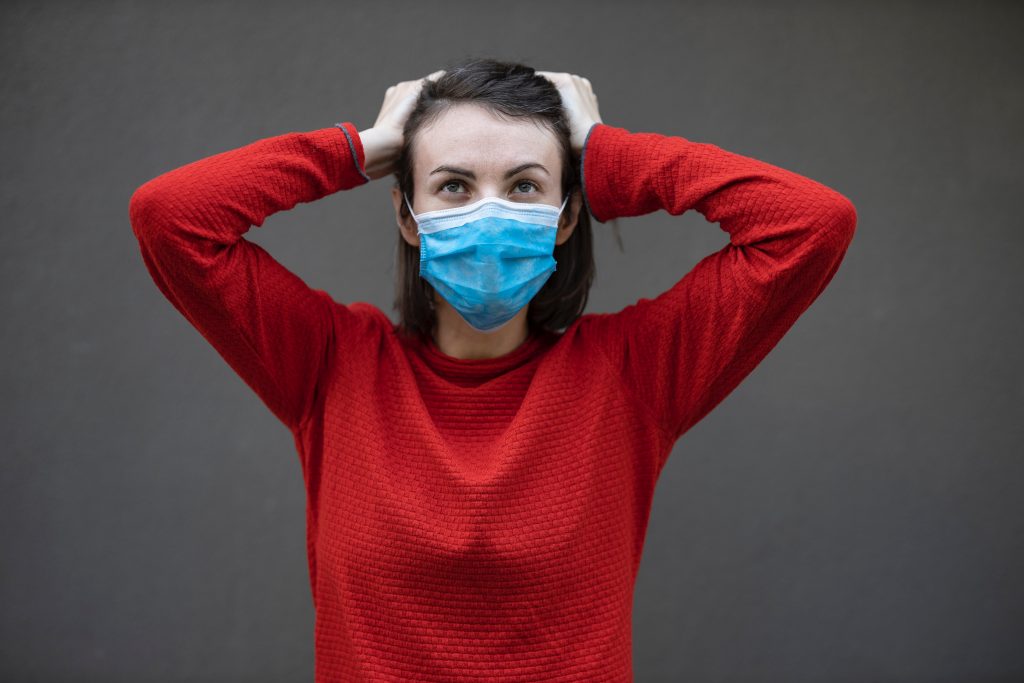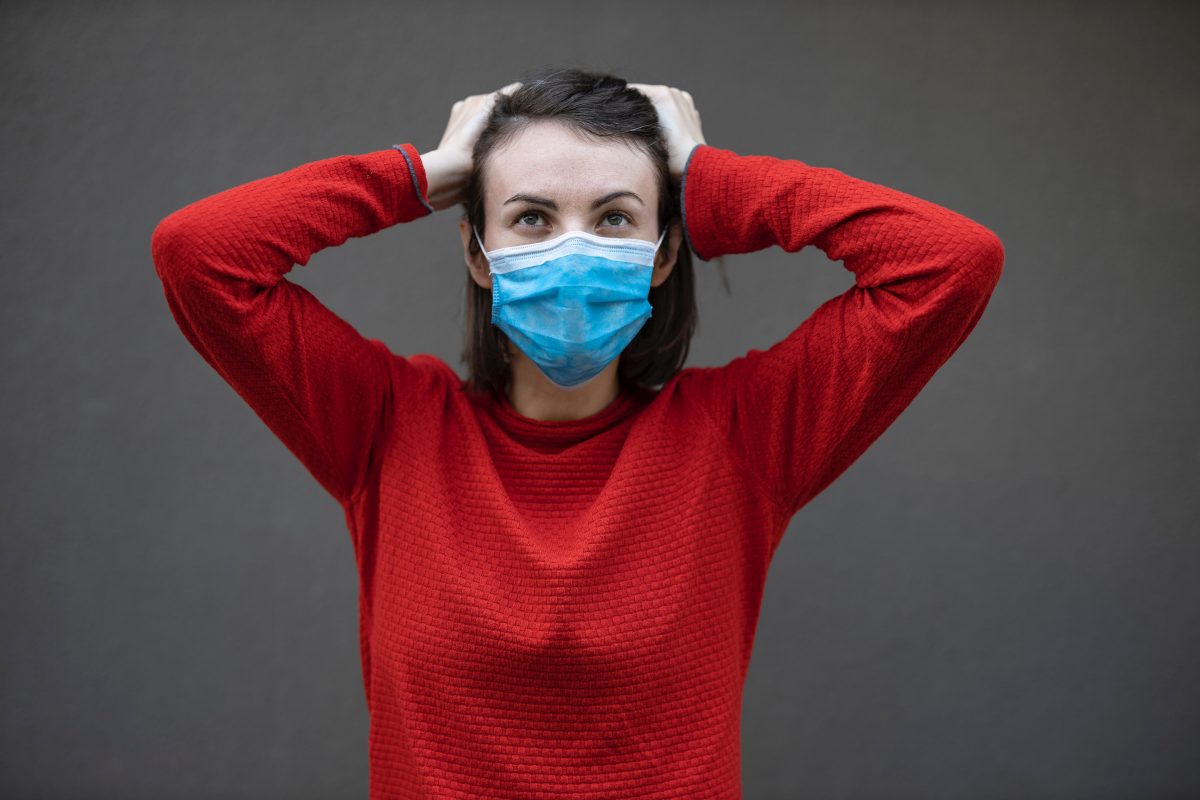Parents have been sharing with me their worries that their kids will not be able to tolerate wearing a mask at school. As a pediatrician, I have some reassurance to offer. Children will definitely be able to wear their masks at school during the coronavirus pandemic. It’s going to be okay.
Parents are worried enough about sending kids back to school, and I want them to feel more comfortable about masks. To unravel all the confusion about masks, we need to start at the beginning.
Masks in March 2020
Let’s start with the early misunderstanding about masks, which has left a lot of people confused even now. Because at the beginning of the pandemic, people in the U.S. were hoarding masks and healthcare workers couldn’t get them, public health officials made a decision.
To make sure masks got to healthcare workers, public health officials asked people to donate their masks. At that time we were just beginning to understand how coronavirus spreads, and we thought that touching surfaces with the virus on it could be an issue. It is for a lot of viruses.
So the worry was that since people who don’t normally wear masks tend to touch their faces a lot and mess with their masks, it would be better for the public not to wear them. That made sense when public health officials thought that touching surfaces and then touching masks would be a big way of getting coronavirus.
While it is possible to get coronavirus from surfaces it turns out that that is not a major way it’s spread. And that means that the worry about people touching their masks and touching their face is not such an issue after all. On the other hand, we learned over time that the COVID-19 virus is super contagious through the air.
That changes everything about how we think about masks. Anything we can do to cut down on our chances of breathing in the virus is essential. And that’s why the public health officials and doctors like me are now urging everyone to wear masks.
Masks are the best way to stop coronavirus.
What I want you to leave with is the understanding that it’s super important for your kids to wear a mask so that they don’t breathe in the virus. And we’re not too worried about them touching their face anymore. Remember, it’s a new virus and we had to learn over time. And we are still learning.
Another reason masks are important is because just talking, or even breathing according to some studies, propels the viral particles into the air.
We still don’t know who’s contagious. Since people can be highly contagious for the four days before they show symptoms, it’s really important to keep our breath to ourselves. At school, kids and teachers need to wear their masks to keep their breath to themselves and avoid breathing each other’s breath.
Why kids will be able to wear masks.
Let’s move on to why I believe your kids will be able to wear masks. The biggest reason I believe this is because my patients have been doing it for a couple months now. As daycare centers started to reopen, they required kids to come back with masks on.
Many of my patients at ages four and five are being asked to wear their mask all day long. And guess what? They are doing it. Kids adapt more easily than their parents do. If adults tell them it’s the way things are, children take it in stride.
When parents and teachers have a good attitude about masks and share with their kids how important it is, kids do an even better job. My own son hates the way his mask fogs his glasses, but he knows he needs to wear it anyway.
Masks are good for us.
We doctors are asking everyone to wear masks because we care about your well being. Masks are perfectly safe, and the front line of defense against coronavirus.
Unfortunately, there’s been a lot of really silly stuff on the internet about masks. It’s completely untrue, but it’s scared people for no good reason period.
Masks allow you to get air just fine, and to blow off your carbon dioxide. Doctors have been wearing them all day in operating rooms for years, so we’d know by now if they caused problems. In fact, we do know. They don’t cause any breathing or lung problems.
To convince us, lots of doctors have run experiments and posted them online. One I know did a 60 minute high intensity peloton workout with an N95 mask on, all while wearing a pulse oximeter. Her oxygen was great the whole time, and she has asthma!
So why do some people say they feel like they can’t breathe? We are used to breathing with nothing in front of our mouth. And so our brain notices the mask and that it’s a little hot, and interprets it as feeling bad. We say to ourselves, “I can’t breathe.” But actually you can. What’s your feeling is hot and uncomfortable, not air deprivation.

People feel the exact same way when they’re out of shape and start exercising. But nobody tells themselves that they can’t breathe and they have to stop exercising then. They know it’s that they need to get better at exercise and then the breathing will get easier.
It’s the same with masks. We just need to practice. We all do uncomfortable things in our lives to keep ourselves healthy. Just think of all the vaccines you’ve given to protect your child. They’re uncomfortable, but they’re necessary, and they’re much much less uncomfortable than the diseases we’re trying to prevent.
Medical exceptions for school aged kids.
What about medical exceptions to wearing a mask? There’s actually very few of those.
What about asthma? Masks are even more important for kids with asthma. If a child with asthma can’t breathe comfortably in their mask, then that could mean their asthma is not well controlled. And that’s a problem. If asthma is not well controlled, that means you need to make an appointment with your doctor as soon as possible. We are rarely unable to control asthma when families work with us and use their medicine consistently.
Rather than asking your doctor for a note to excuse them from wearing a mask at school, make an appointment if they are having trouble with asthma.
Parents of children with severe developmental disabilities may find that their child can’t wear a mask, and that’s something they can discuss individually with their doctor. However, many kids with developmental delays are actually able to wear their masks with a little practice. The same is true for kids with anxiety. After all, a treatment for anxiety is exposure to the thing that makes us anxious, so we can build our strength. Practicing mask-wearing can help a lot.
How parents can help their kids with masks.
We can do this and we can set a positive tone for our kids. And just think of the impact we can have on our world if we all wear masks. We can really slow this virus down.
This is our chance to help our kids feel like they’re contributing to their communities by protecting themselves and each other. It’s a way they can be good citizens.
I’ve been telling my patients that we’re all superheroes now. Superheroes put on masks and protect people. Now, we put on masks to protect people. That makes us super heroes. Kids love this idea.
A note to the parents of adolescents. I know you are worried that they won’t listen or wear their masks. And I know that you can’t be at school to watch them, so we’ll have to hope that your school enforces masks and social distancing.
But I’ve also noticed that many parents of adolescents don’t know about their power? Do you know your power? Hint: it has to do with that thing that has been surgically attached to your child.
Their phone. Their electronic devices. If they don’t follow your family’s expectations for masks and social distancing, take their phone. It only takes a day! It’s magic how their behavior changes after one day without their electronics.

